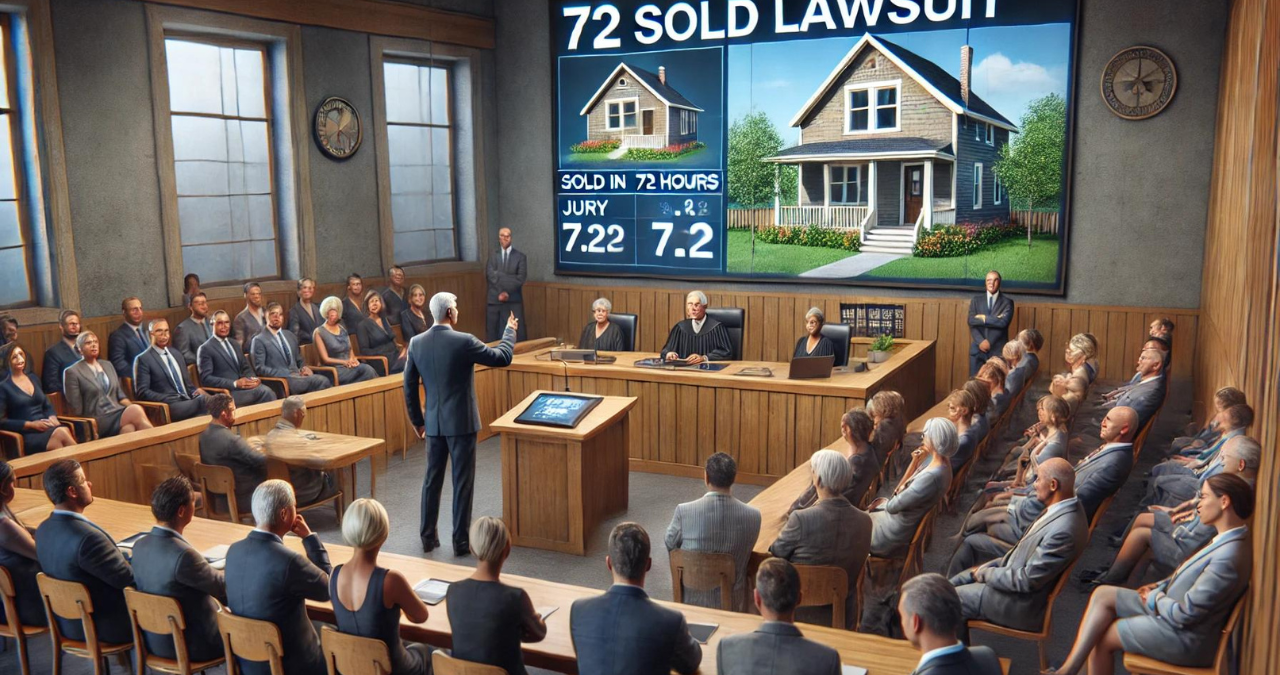Introduction
The real estate sector has recently witnessed various 72 sold lawsuit challenges, but few have garnered as much attention as the 72 Sold lawsuit. This case has significant implications for the parties directly involved and for real estate practices nationwide. This article delves into the details of the lawsuit, examines the legal principles at play, and explores the potential outcomes and their implications for the real estate industry.
Background of the 72 Sold Lawsuit
72 Sold is a real estate company known for its unique selling proposition of helping homeowners sell their properties within 72 hours. The lawsuit, filed in [insert year], raised eyebrows across the sector due to the bold claims and the rapid selling strategy that 72 Sold advertises. The plaintiffs argued that the company’s practices were misleading, potentially causing financial losses to the homeowners who trusted the firm with their property sales.
Legal Issues Addressed
The lawsuit brought to light several key legal issues:
- Misrepresentation: The core of the lawsuit hinges on allegations that 72 Sold misrepresented the services it could deliver.
- Breach of Contract: The plaintiffs claim that 72 Sold failed to adhere to the agreed-upon terms of their service contracts.
- Consumer Protection Violations: The lawsuit also touches on consumer protection laws, which ensure fair business practices.
Analysis of the Court Proceedings
The lawsuit proceedings provide a detailed look into how each party presented their case and the legal defenses employed by 72 Sold. Notably, the company argued that its business model is based on a systematic approach, which, while aggressive, remains within legal bounds.
Implications of the Lawsuit’s Outcomes
The outcomes of the 72 Sold lawsuit are set to have widespread implications:
- For Consumers: A ruling favoring the plaintiffs could lead to more stringent regulations on how real estate services can be marketed, potentially increasing transparency for homeowners.
- For Real Estate Professionals: This could set a legal precedent that might restrict certain aggressive marketing techniques, altering how properties are sold nationwide.
- For the Real Estate Market: Enhanced trust and transparency in real estate transactions could lead to more stable market conditions.
Potential Legal Precedents
Should the court rule against 72 Sold, the decision could establish a significant precedent regarding real estate companies’ accountability in their marketing practices. It could also lead to a reevaluation of what constitutes fair representation in real estate advertising.
Conclusion
The 72 Sold lawsuit is a landmark case that could reshape many aspects of real estate business practices. As the legal community and industry stakeholders await the final verdict, the implications for market practices and legal frameworks continue to be a topic of robust discussion.
FAQs About the 72 Sold Lawsuit
- What was the main allegation in the 72 Sold lawsuit?
- The main accusation was that 72 Sold engaged in misleading practices by promising to sell homes within 72 hours without delivering consistently on this promise.
- What are the potential implications for homeowners if the plaintiffs win the lawsuit?
- Homeowners could benefit from greater transparency and more stringent real estate marketing practices regulations, ensuring companies fulfill their advertised promises.
- How might this lawsuit affect real estate professionals?
- Real estate professionals may see increased regulations and scrutiny over marketing practices, requiring them to adjust their strategies to ensure compliance with consumer protection laws.
- What legal precedents could this case set?
- This case could set precedents on the limits of marketing claims in real estate, particularly around the speed of service and the guarantees made by companies like 72 Sold.
- Why is the 72 Sold lawsuit considered a landmark case?
- It is regarded as a landmark because of its potential to influence future regulations in the real estate industry, affecting how services are advertised and delivered across the board.
You May Also Read: https://trendbullion.com/money-6x-reit-holdings/




